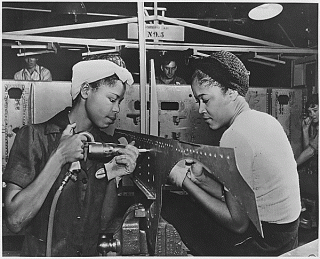Career
Finding Meaning in Work
How the new economy has altered the psychology of work
Posted March 10, 2015

Some revolutions begin with a bang and proceed with all the stealth and subtlety of Fourth of July fireworks. But others occur quietly and so incrementally that when they are over, the changes seem inevitable—and not revolutionary at all.
Such is the revolution that has transformed the workplace over the past half century. In the span of forty years, an older economy dominated by manufacturing and large corporate bureaucracies gave way to a service, knowledge, and information economy, with profound consequences for gender roles, the distribution of income and wealth, and access to upward mobility. During the 1970s, alone, the proportion of married women working for wages doubled.
Driving the transformation of work were mounting foreign competition (which reduced manufacturing employment by 40 percent) and the growth of information technology, which radically disrupted journalism, publishing, retailing, and the music industry.
Administrative hierarchies flattened, eliminating many of the middle management positions that employed many middle-class white collar employees, and there was a shift toward more “flexible” employment arrangements, evident in the increasing reliance on freelancers, independent contractors, and part-time employees.
Meanwhile, in today’s 24/7 economy, email and cellphones have undercut the divide between worktime and leisure time. Not surprisingly, talk about job-related stress, work-family tensions, and insecurity about layoffs mounted.
Yet despite all these developments, work has become ever more central in defining adult identities.
Work now lies at the core of adult identity, for women as well as men. Twentysomethings might think of a job as a gig, but those who are old define themselves less through their class status, religion, ethnicity, or neighborhood, but through their job title, workplace role, or employer.
Careerism, the rat race, and the grind—widely derided during the boom years of the 1960s—gave way a heightened dedication to work. For all the complaints about work-life balance, many Americans engage in work even when they are nominally off-duty, including on evenings and weekends. Many fail to take sick days or family leave, even when this is available. Many older workers cling to their jobs until the age of 70 or beyond.
A growing number of workers not only look to jobs for a wage, but for structure, sociability, and a sense of accomplishment and purpose. Even as jobs have become more precarious, and even as large numbers of adults provide personal services or perform repetitive tasks, adults crave work that is meaningful and rewarding.
Americans are distinctive in their devotion to work. Compared to Europeans, Americans work longer hours and take shorter vacations. In a society that attaches so much significance to work, it is not surprising that the unemployed and the retired often suffer from depression, loneliness, and a loss of self-esteem.
Adults value work even though only a minority hold jobs that are intrinsically dignified and well paying, and that offer a great deal of autonomy and opportunities for self-expression. Indeed, the world of work has become increasingly stratified. It is stratified not only by earnings, but by scheduling, hours, autonomy, and responsibility.
Curiously, most adults now speak of having a career, though the word means something very different than it did a generation ago. No longer is a career a craft honed over many years or a decades-long climb up the ladder of a single employer. Instead, a career now refers to a succession of jobs through which individuals grow and raise their standard of living.
Today, virtually all employees must worry about job stability. In a high risk economic environment, entrepreneurship and adaptability—not persistence, tenacity, loyalty, and teamwork—are the traits that are most valuable.
So, too, is salesmanship. In recent years, the line separating sales and marketing from other jobs has faded. Even white collar employees must be salespeople, whether interacting with clients or customers or championing initiatives. As such, they must embrace the attributes of effective salesmanship: The ability to charm, sweet talk, anticipate needs, and provide service with a smile.
Both Karl Marx and Sigmund Freud considered work an essential component of a meaningful life. But too often work fails to meet the need for a fulfilling purpose and a sense of accomplishment. Ours is a society that cultivates big dreams and sends out the message that great wealth is well within people’s reach. But such ambitions are rarely realized, and such a society is sure to produce great disappointment.




